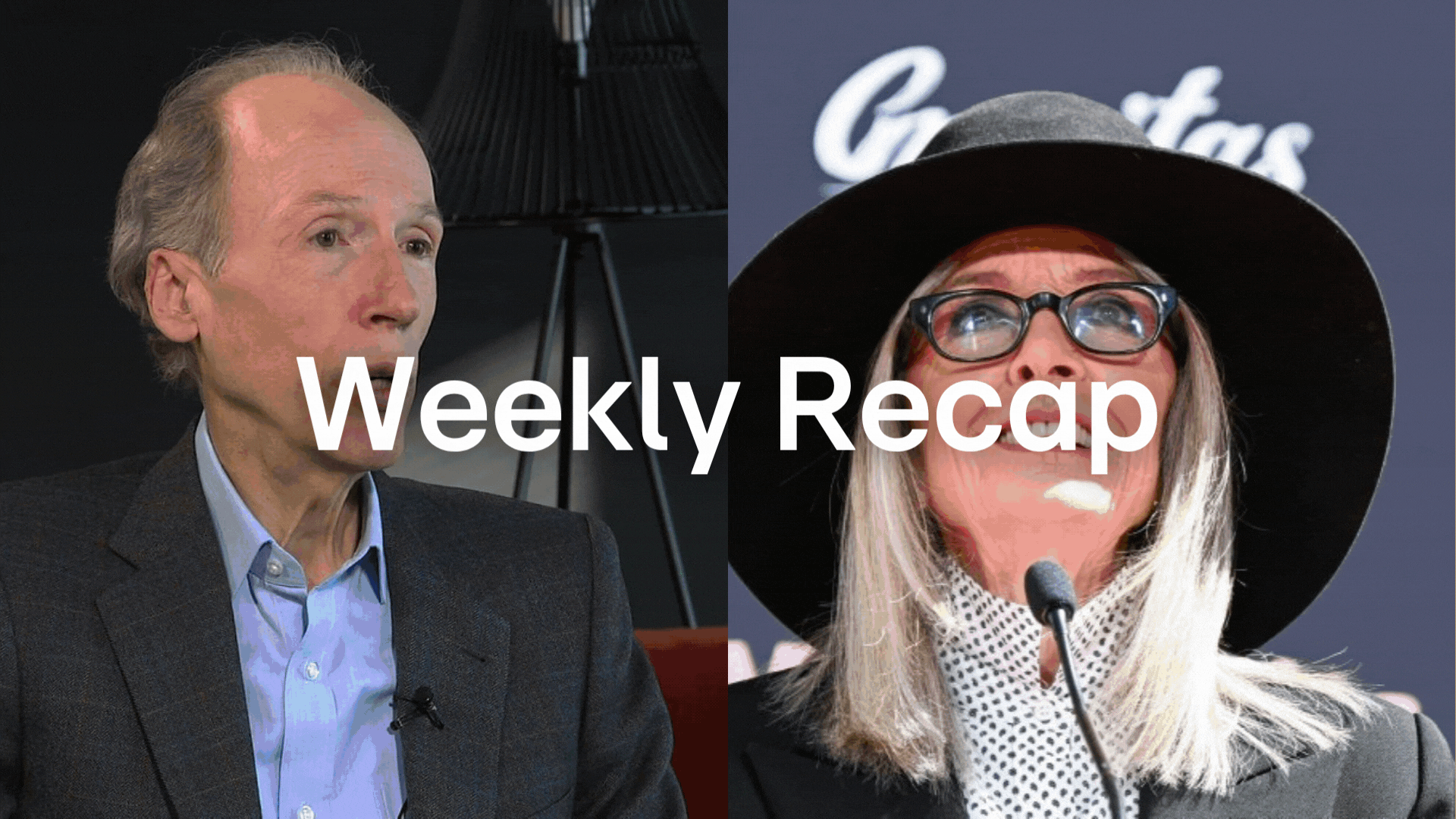
Here are five things you should know at the end of this week:

DP MP and doctor Gérard Schockmel published an opinion article attacking what he calls modern feminism and arguing against writing abortion rights into Luxembourg’s Constitution. The Democratic Party tried to distance itself from the controversy, saying the piece reflects Schockmel’s personal views, not those of the party.
No fan of fem’ – Luxembourg Democratic Party MP Gérard Schockmel’s opinion article denouncing modern feminism and opposing enshrining abortion rights sparked backlash. DP president Carole Hartmann stressed Schockmel’s views are personal, as Equality Minister Yuriko Backes and politicians from the Greens and The Left condemned the piece.
The timing coincided with a committee vote backing constitutional protection for abortion, opposed only by ADR’s Fred Keup. DP International reaffirmed the party’s commitment to equality, feminism, and inclusive democracy.
Criticism across the board – Schockmel’s op-ed sparked ongoing backlash, but DP parliamentary leader Gilles Baum said there will be no internal sanctions and reiterated MPs have a free vote, while expecting most of the party to back the change. DP MP Barbara Agostino distanced herself from Schockmel, urged shifting the debate toward prevention and better sex education, and called for on-the-ground outreach and stronger coordination across health, family, and education ministries.
DP Minister for Equality and Diversity, Yuriko Backes was “saddened” that such an article had been published in the year 2025. The Greens’ Stéphanie Empain expressed her outrage, while The Left MP Marc Baum stated that Schockmel’s opinion piece shows “how far we still have to go before we can live in a truly egalitarian society”.
Family Planning condemned Schockmel’s arguments as anti-feminist and a misuse of Simone Veil’s legacy, noting that publication proves there is no censorship; it framed abortion rights as a hard-won democratic fundamental and pressed for their constitutional protection.
International members of the DP rebutted Schockmel’s op-ed with a statement reaffirming commitment to equality, feminism, and inclusive democracy, calling equality “the condition of democracy itself.” It warned against rollbacks on gender rights, linked women’s rights to democratic health, and praised Luxembourg’s diversity, stressing that democracy must hear everyone.
Actually, some of my friends are feminists – Gérard Schockmel used a Wednesday parliamentary debate to address criticism of his remarks, saying he was voicing a personal view on the complex constitutional issue of abortion. He welcomed the free vote tradition in Parliament, underscored his respect for Simone Veil’s “humanist feminism,” and said that spirit aligns with the DP’s long record on women’s and family rights. He added he feels at home in the party, citing figures like Anne Brasseur, Colette Flesch, Lydie Polfer, and Corinne Cahen as examples of those values.
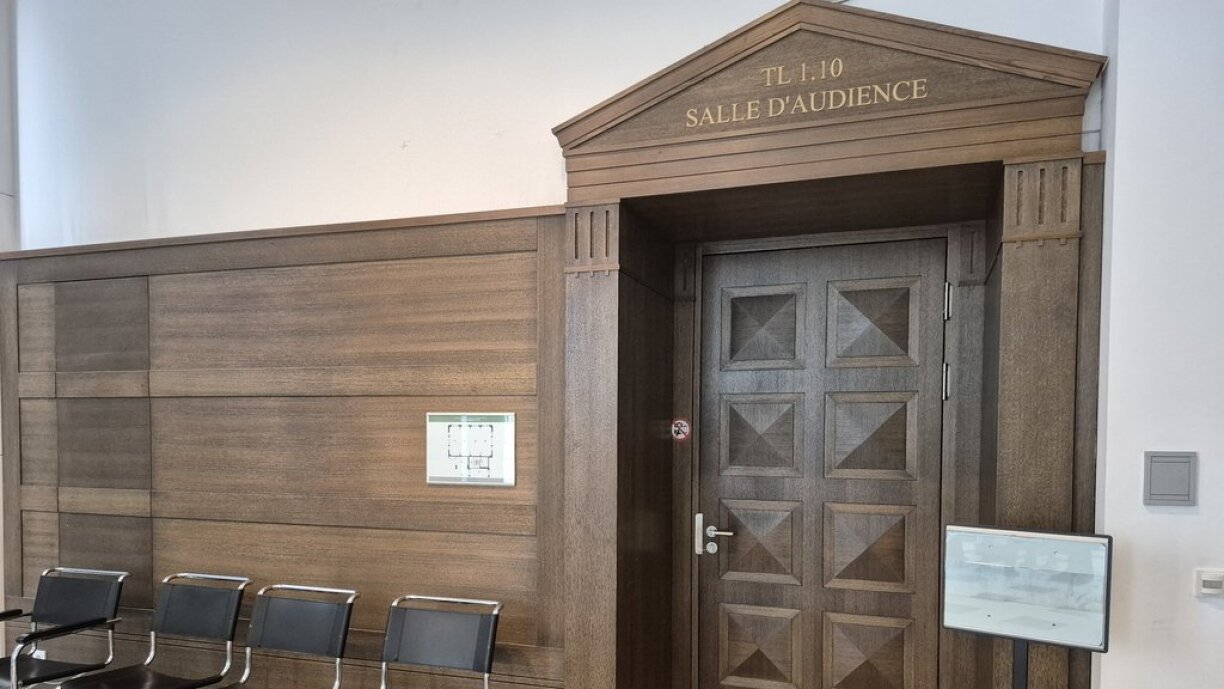
Nearly four years after an 18-year-old, Rafael, was fatally stabbed in Luxembourg City’s Bonnevoie district, two youths – aged 15 and 17 at the time – have gone on trial for murder and intentional assault.
A trial over alleged police brutality began this week, involving a group of five police officers accused of violently assaulting a detainee in Esch, and attempting to fabricate reports and cover up the events.
On Thursday, a former social worker accused of sexually assaulting a number of women while working for Sanem municipal council was handed the verdict, which resulted in a sentence of 7 years in prison, with five years suspended.
Youth violence – This week, the hearings for the Bonnevoie fatal stabbing of an 18-year-old finally began. The case shocked the country in January 2021 and spread widely after footage circulated on social media.
The testimonies outlined a chain of events that began online: according to investigators, initial contact was made via the OmeTV app and gaming chats before a small cannabis sale was arranged via Snapchat. Two groups of teenagers agreed to meet in Bonnevoie; they arrived armed – one side with at least one knife, the other with a baton. A scuffle followed, and 18-year-old Rafael sustained a single, eight-centimetre stab wound to the heart. He collapsed a few steps away and died shortly afterwards. A second defendant suffered a non-fatal groin wound; no additional knife was recovered despite investigators not ruling one out.
The main accused, who was 17 at the time, has acknowledged wielding a knife but denies delivering the fatal blow, describing his actions as a panicked bid at self-protection after being struck in the face. Witness accounts diverge over who used which weapon, when, and how, leaving the precise moment and author of the fatal stab unresolved.
A court-appointed psychiatrist told the tribunal the main defendant shows “real empathy” and genuine remorse for the victim’s family, and is assessed as a low risk of reoffending. The victim’s relatives have joined proceedings as a civil party and are seeking €500,000 in damages.
Police brutality – Five Luxembourg police officers are on trial over a 2019 incident in Esch-sur-Alzette in which a 41-year-old Syrian asylum seeker, detained after disturbing a bar while intoxicated, was allegedly punched so hard by an officer that his jaw fractured and his eye was injured. The man was taken straight to a holding cell without treatment; day-shift officers found him the next morning lying in blood and returned him to hospital. An internal probe later flagged contradictions between officers’ reports and hospital CCTV, leading to arrests and suspensions.
At Wednesday’s hearing in Luxembourg City, the prosecutor requested six years’ imprisonment for the main defendant and four years for each of the other four officers, plus fines and removal from duty, leaving it to the judge to decide whether the conduct meets the threshold for torture. Prosecutors said the victim was handcuffed and restrained by colleagues when the blow was delivered, allegedly after being deliberately positioned, and described additional degrading treatment when he was forced into a police van “like cattle.” While acknowledging officers need not tolerate being bitten or spat on, the prosecutor argued force here was unjustified because the detainee was no longer resisting. Aggravating factors cited included the main officer’s use of reinforced gloves not then standard issue.
Defense counsel called the episode both a personal and systemic failure, sharing the main defendant’s written statement expressing depression, isolation, and lasting remorse. The trial continues Thursday at the Luxembourg City District Court.
Sanem abuse –A former social worker for the Sanem municipal council was sentenced to seven years in prison with five years suspended for offences committed between 2010 and 2019, after a case that began at trial four months ago.
The court found he exploited women who relied on the social office, with a pattern that moved from formal contact to intrusive messages, unannounced home visits and sexual touching; one woman reported rape, which he denied. At the June hearings, multiple victims testified independently yet described similar conduct. One of the victims, who has a physical disability, described how the accused asked her how “she liked it in bed”, adding that she felt forced to answer because he claimed to be “pulling the strings”. She recounted another episode in which he appeared at her home uninvited shortly after she had undergone surgery, and touched her inappropriately.The judge noted a clear pattern, and the women’s lawyer cited items found in the defendant’s office as corroboration.
During the trial, the accused admitted to having made mistakes and acknowledged causing harm, but denied elements of the allegations. He insisted that he never physically harmed anyone and never made his help conditional on sexual favours.
This week’s ruling also orders psychiatric treatment. One civil party was awarded €3,000 in damages while others received symbolic sums, and the municipality’s bid for €480,000 in compensation was rejected.
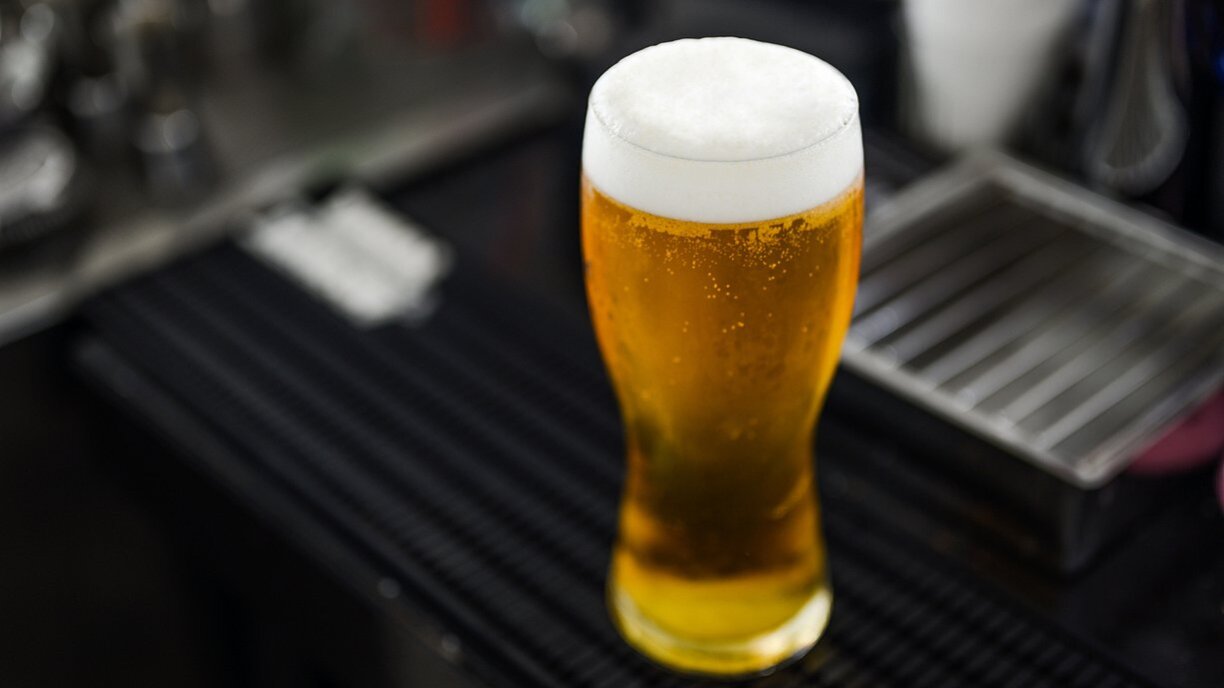
Luxembourg’s competition watchdog says two dominant brewers use exclusivity, quotas, and tied perks to control what bars sell and at what price, a picture echoed by a 2019 report and fearful bar owners.
Their leverage grows as primary landlords and licence holders, and owners report rent hikes, denied repairs, and tighter control.
With brewer-set keg prices, low pay, staffing woes, and falling alcohol use, bar margins are being crushed.
A storm brewing –Luxembourg’s competition authority says two dominant brewers are squeezing the market, with bars bound by exclusivity clauses that push them to stock mostly Diekirch or Bofferding, set minimum quotas, and tie discounts or equipment to compliance. Bar owners – speaking anonymously for fear of reprisals – say the breweries “set the rules”, from drink prices to what can be sold, mirroring concerns raised in a 2019 competition report recently cited by the Luxembourg Wort.
Not just behind the bar –Brewers’ leverage extends beyond supply: they are often primary tenants and hold a large share of the scarce alcohol licences, giving them sway over rents and access. Tensions have risen since the Munhowen–Heintz merger linked to a Brasserie Nationale shareholder, with owners reporting rent hikes, denied repairs, and tighter control; Both RTL’s and Wort’s attempts to obtain comments from brewers went, as of yet, unanswered.
Not much left –A 2022 court ruling overturned limits on subletting markups, allowing primary tenants to pass on costs and earn a “reasonable profit,” and several owners say Brasserie de Luxembourg raised rents afterward – reportedly by 10% for each new operator. With kegs priced by the brewers, low sector pay (around €40,000 net on average), staffing shortages, and falling alcohol consumption, bars face razor-thin margins.
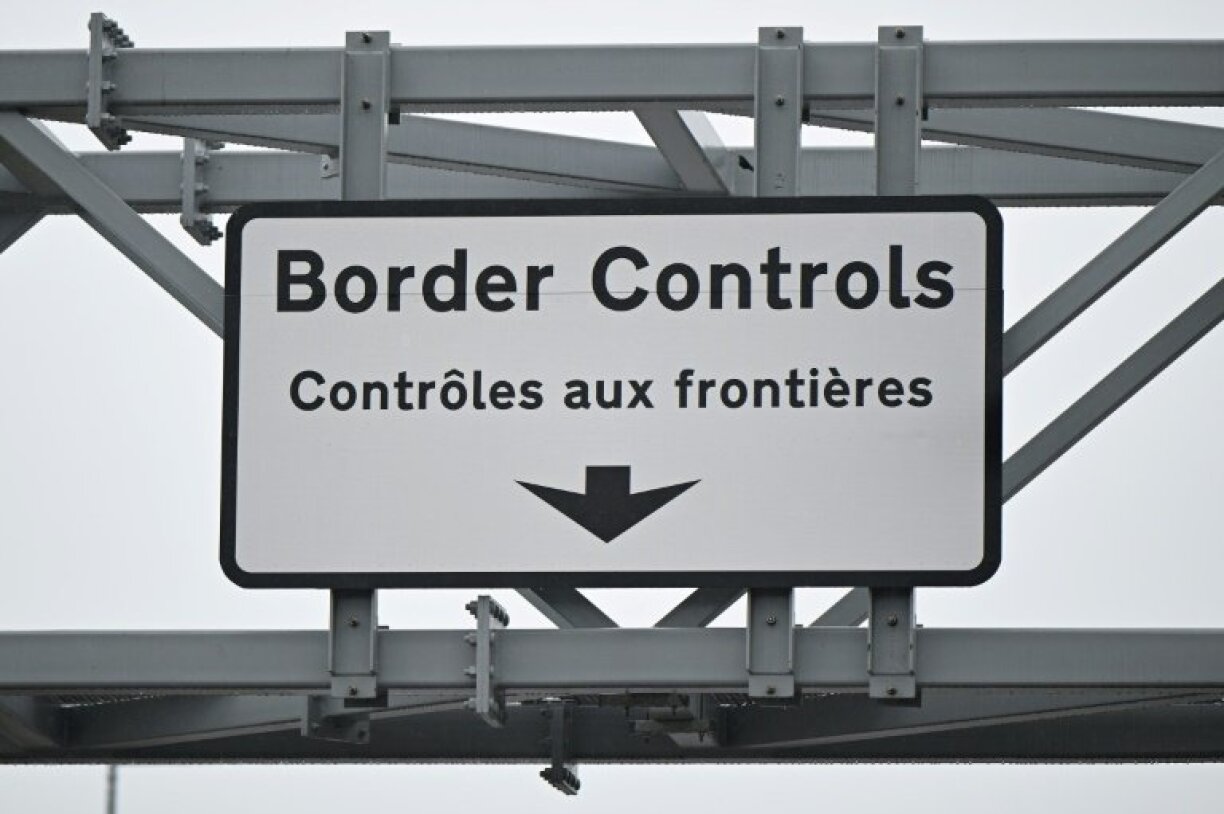
Travellers entering Europe’s Schengen zone will face a new reality, as the European Union starts replacing passport stamps with biometric checks.
Along with the new automated checks, a new electronic authorisation system is expected to be implemented in the near future.
The UK, now outside the EU space after Brexit, is a major source of visitors, but operators say they are ready for the new systems.
Check, please –The EU has begun rolling out its long-delayed Entry/Exit System (EES), replacing manual passport stamps with biometric checks for non-EU travellers entering the Schengen area. At border crossings, passengers will have their fingerprints and photo captured, creating a record that logs each entry and exit to improve information-sharing among the 27 member states and help spot overstays or refused entries.
To ease the transition, implementation is phased. Starting from last Sunday, non-EU visitors on short stays will now provide passport numbers and biometrics at automated kiosks across Schengen countries – excluding Cyprus and Ireland – and in Iceland, Liechtenstein, Norway, and Switzerland. The shift, debated for years, has raised concerns among transport operators and passengers about longer queues at airports and stations, which authorities hope to minimise with the staged rollout.
All members must be fully ready to apply automated checks to passengers by mid-April.
ETIAS fee, find out what it means to me –Brussels will run information campaigns as EES scales up, arguing it will deter irregular migration and enhance security for residents and visitors. The next step is ETIAS, an electronic travel authorisation akin to the US system ESTA, under which visa-exempt travelers must complete an online form and pay a small fee (an amount still to be decided) before entering the EU.
UK rail on track for change –Channel Tunnel operator Getlink and train service Eurostar say they’re ready for the new European Entry/Exit system (EES) after extensive testing, with Getlink investing about €80 million in UK-France installations and Eurostar up to €11 million. Eurostar says check-in times won’t change thanks to the new pre-departure scanners in London.
The system will log travelers’ biographic and biometric data, plus entry and exit dates, to monitor overstays and refused entries, now relevant for the UK post-Brexit. While Getlink’s CEO voiced confidence in a smooth start and stressed the need for a good experience given most car crossings use the Tunnel, there have been reports of scanner glitches ahead of launch, fueling lingering concerns about potential delays.
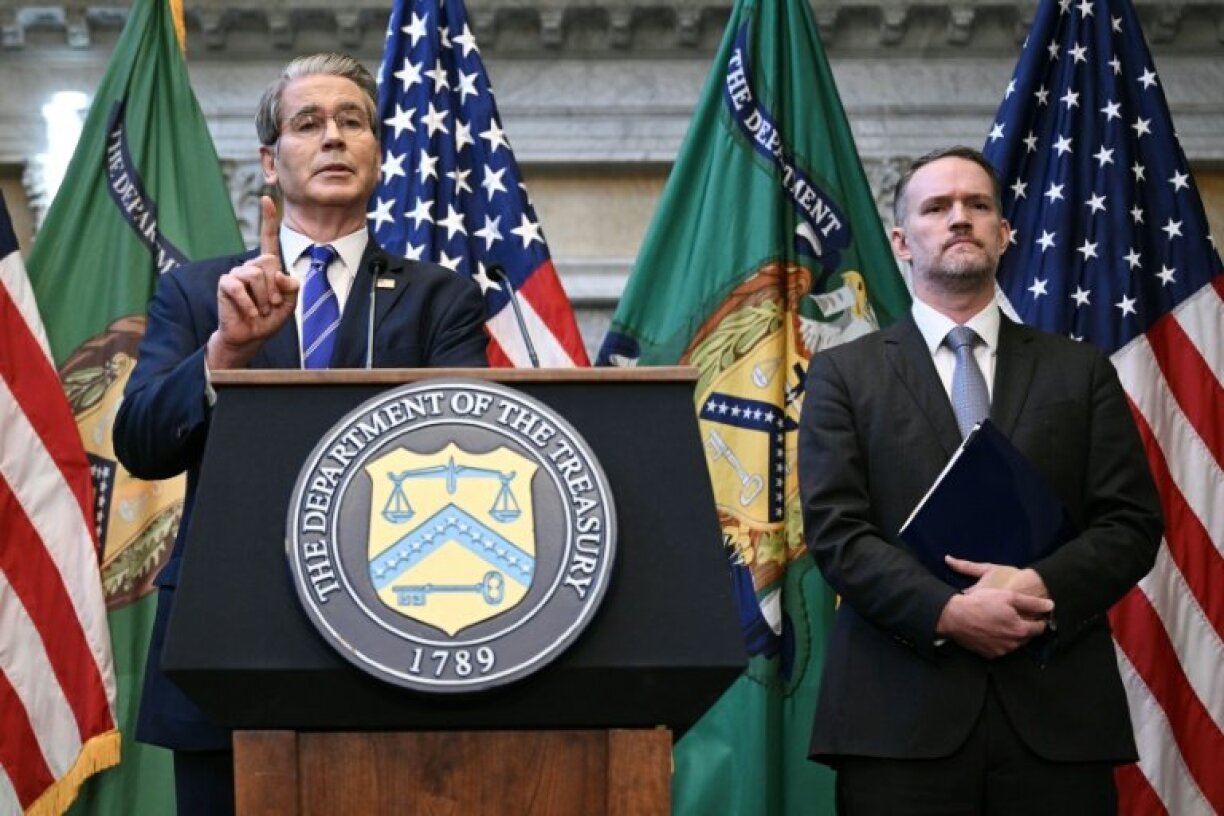
Trade tensions between China and the United States continue to mount following a series of measures and statements in the past week, which saw China accusing the US of bullying.
The US Treasury Secretary slammed Beijing’s rare earth export curbs Wednesday as “China versus the world,” vowing that Washington and its allies would “neither be commanded nor controlled.”
Amid the ongoing trade tug-of-war, China cut down on US soybean purchases, a move criticised by Donald Trump, who then threatened to stop buying cooking oil, among other goods.
Big bully –China defended its continued purchases of Russian oil as “legitimate” economic cooperation and blasted new US measures as “unilateral bullying,” after President Donald Trump claimed India would halt Russian imports and said he would press Beijing to do the same. Beijing warned of “firm countermeasures” if its interests are harmed, while India offered no clear confirmation of any policy shift.
The clash comes amid a wider trade flare-up: Washington has expanded export controls and begun levying fees on Chinese-built and operated ships, while warning of steep new tariffs after China tightened controls on rare-earth exports; Beijing responded with “special port fees” on US vessels and said the US steps were “profoundly detrimental” to talks. China’s commerce minister told Apple’s Tim Cook that stable US–China trade ties require both sides to “meet halfway,” adding Beijing remains open to foreign investment.
What is it now? –The new point of contention came to light when Washington blasted China’s new rare-earth export curbs as “China versus the world,” with US Treasury Secretary Scott Bessent urging allies to rapidly de-risk and diversify supply chains. Trade Representative Jamieson Greer added that tariff hikes and further export controls are on the table if Beijing doesn’t relent.
Set against a revived US–China tariff fight and a shaky truce due to lapse in early November, Trump has threatened an extra 100% tariff from November 1; Bessent floated extending the tariff pause if China delays its controls, with negotiations expected ahead of leaders’ talks at APEC in South Korea. Greer framed Beijing’s move as a global supply-chain “power grab,” stressing that the stakes go far beyond the United States.
Bean counting –Earlier, China had suspended US soybean purchases, a decision that left American growers facing weak prices, shrinking orders, and mounting uncertainty just as harvest begins. Farmers in Maryland describe decent yields but depressed markets, with soybean prices down about 40% from three years ago and China –formerly buying over half of U.S. exports – pulling back; the purchasing window (typically October–January) is narrowing, storage is filling up, and some Midwest producers risk selling at breakeven or worse.
President Donald Trump condemned China’s suspension of US soybean purchases as an “economically hostile act”. warning on Truth Social that Washington could retaliate by halting imports of Chinese cooking oil and other goods – though he also told reporters the US–China relationship is “fair” and might “be fine.” He argued the move hurts American farmers, as US demand for animal fats and processed oils has surged alongside growth in biomass-based diesel.
Industry leaders hoped high-level talks would reopen the China market, but fresh threats of 100% tariffs and clashes over rare earths have pushed a durable deal further out of reach.
Business & Tech – Greece’s parliament on Thursday approved a government-backed bill allowing people to work 13-hour days, despite fierce objections from trade unions and opposition parties.
Science & Environment – The United Nations call for urgent action to cut emissions after record rates of CO2, methane, and nitrous oxide were recorded.
Entertainment – Hollywood mourned the loss of Diane Keaton, whose iconic turns in Annie Hall and The Godfather redefined leading roles for women on screen.
Back home – After two years in Hamas captivity, Israeli hostages were finally released, following the Gaza ceasefire plan which also included the release of Palestinian prisoners.
Kiss and... rail at the Gare – A new one-minute drop-off zone has been established directly in front of Luxembourg City’s central train station, while the waiting area for pick-ups has been expanded at the P+R.
Shifting demographics – Recent data from STATEC shows that, while Luxembourg continues to attract more people than it loses overall, emigration among Luxembourgers, Portuguese, French, and Italians has been steadily rising in recent years.

Your Weekly Recap is published every Friday at noon. Read earlier versions.